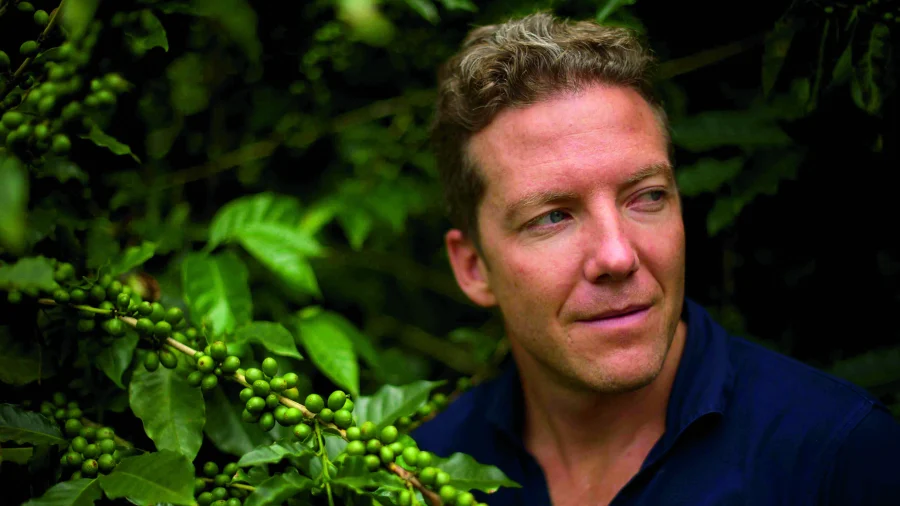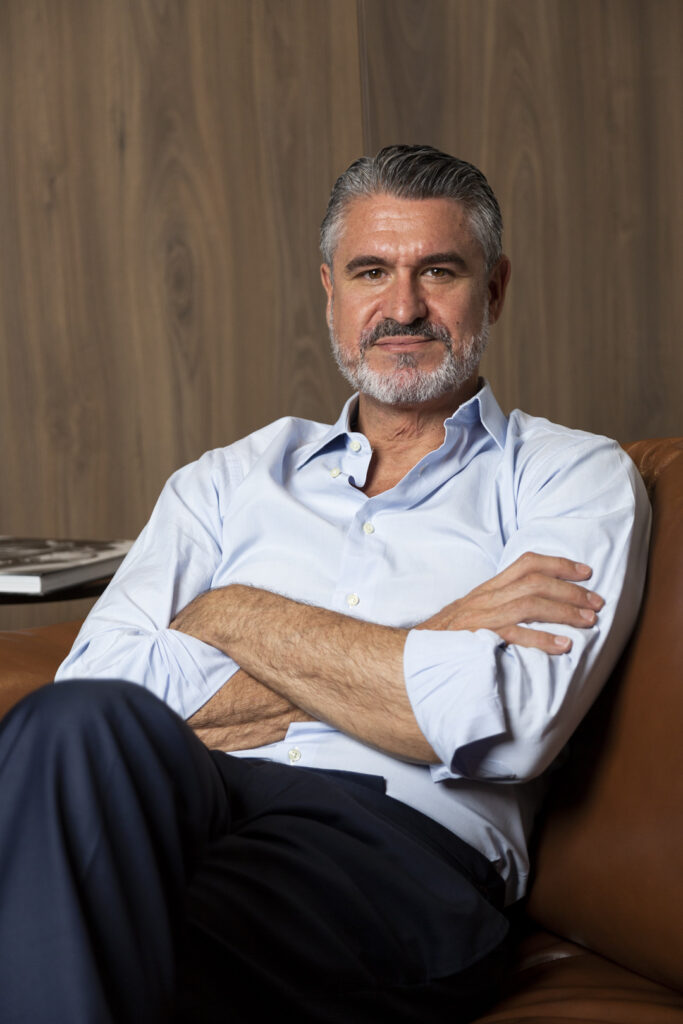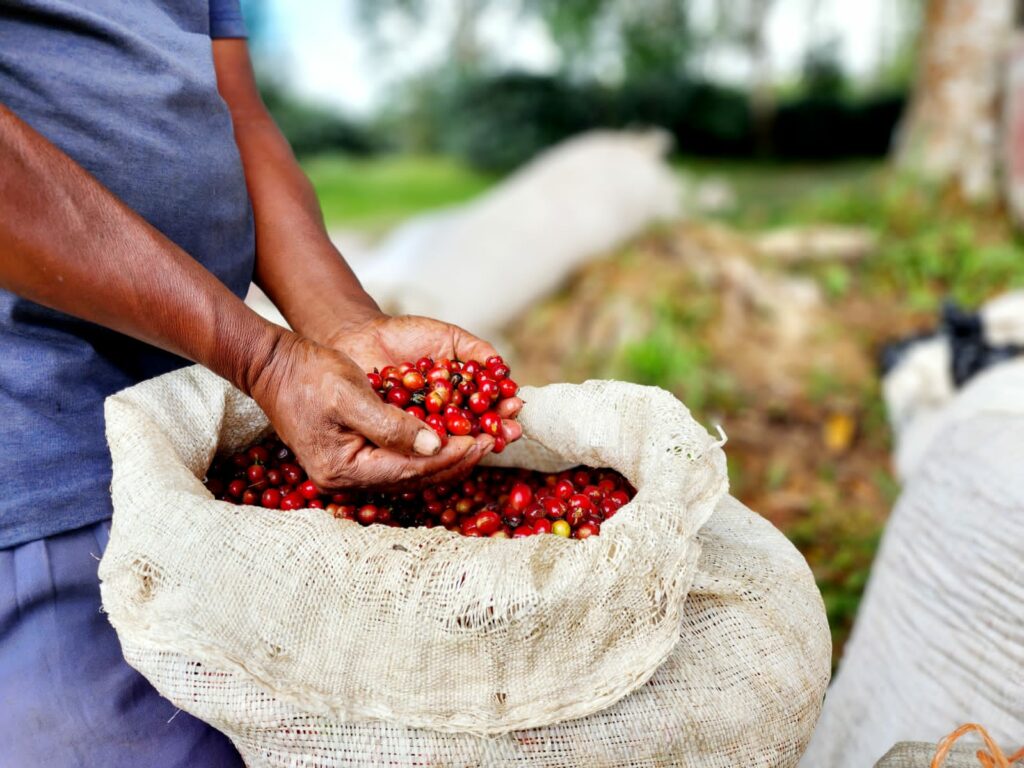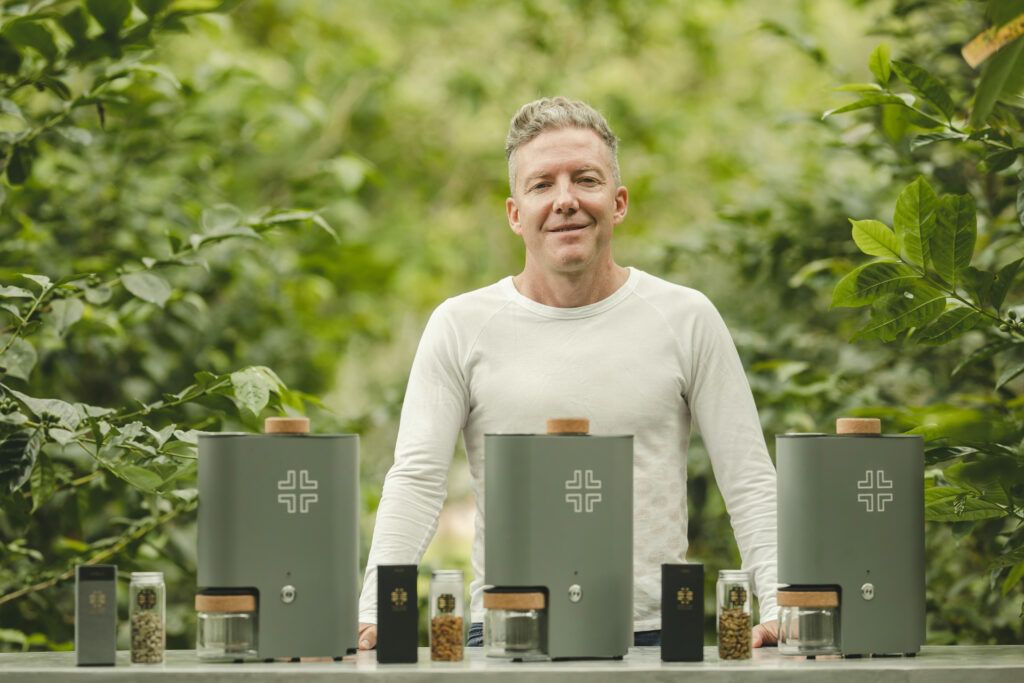By: Clint Carter
Source: Men’s Journal / view original source
FROM OUR HILLTOP vantage point in northern Panama, Costa Rica is visible to the west and Volcán Barú, Panama’s tallest mountain, to the east. A canopy of rain forest stretches to the horizon, and it feels as if we’re walking through untamed wilderness. The only hint otherwise is a gang of coffee pickers in rubber boots, huddled together and sifting through the day’s harvest. “You can’t know this place until you know the forest,” says the farm’s founder, Joseph Brodsky, gesturing at the view before us. “This is where the flavor comes from.”
Brodsky is giving me a tour of his 450-acre coffee plantation, and the next stop is the Rio Colorado, which marks the property’s eastern border. Getting there requires descending more than 900 feet via a series of switchbacks. Brodsky, 44, carries his weight, all 142 pounds of it, in his toes, bounding over knee-high vegetation with an agility that comes from a lifetime playing soccer. Upon reaching the river, he announces that it’s chigger season, removes his shirt and pants, and jumps into the water to rinse off the noxious mites. Stripped to his boxers, he props himself up into a headstand on a flat rock just above the rapids. After 90 seconds upside down, watching the water churn around him, he lowers his feet and sits up.
“What an amazing way to view the river!” he says.
If the coffee world has an Elon Musk, it’s Brodsky. His big idea is to transform coffee beans from a basic commodity, like orange juice, into a savored luxury, like fine wine. His bluster is matched only by his ambition. The name of his company, Ninety Plus, is a reference to the Specialty Coffee Association’s 100-point scale. No one has been awarded a grade better than 97. Ninety Plus has hit that mark three times and will put out only beans that rate above 90. A pound of Ninety Plus coffee retails for an average of $48, but at an auction last year, a lot sold wholesale for a record $2,269 per pound to a roaster in Asia. At the time, basic beans were going for a dollar a pound.
“Joseph has developed a completely unique product,” says renowned roaster George Howell, who has earned a lifetime achievement award from the SCA. “With my first taste, there was this floral note that I’d never had before. I don’t even have to drink the coffee to enjoy it. I could just smell the aromatics for hours.”
NOT LONG AGO, coffee came in regular and decaf—and that was about it. Then Starbucks came along and upended the business, creating slick coffee shops with dark-roasted espresso and elaborate milk drinks. Soon a long list of specialty roasters followed suit, and consumers got used to shelling out $5 for a Venti Americano. But to this day, except in diehard circles, you rarely know more about the beans than what country they come from. Brodsky’s big vision is to turn that idea on its head, creating high-end coffees that are distinguished, and ordered at the cafe by the name of the farm on which the beans were grown, as wine is distinguished by vineyard.
“The big coffee brands that people know are roasters, like Nescafé or Starbucks,” he says. “But nobody can name a coffee producer. We can be that brand.”
Coffee has been a passion of Brodsky’s since he was a kid growing up in Madison, Wisconsin. He and his older brother—now the owner of JBC Coffee Roasters in Madison—would often roast beans in a popcorn popper for fun. Years later, when Brodsky was attending Evergreen State College, he read a book called Coffee Basics, which described a bean from Ethiopia with blueberry and lemon flavors. Intrigued, he sought out the coffee, tasted it, and suddenly knew what he wanted to do with his life. In 2000, at 26 years old, Brodsky left school to open Novo Coffee in Denver with the help of his dad and another brother. Their goal was to focus on roasting and selling those Ethiopian beans. But consistency was a problem. “I’d have to sort through 200 coffees to find maybe one that I liked,” says Brodsky.
After traveling to Ethiopia to judge a coffee competition in 2005, Brodsky decided to stay until he had a better grasp on why the beans were so variable. The move wound up being semi-permanent. Brodsky quickly discovered that farmers had no incentive to improve their products because everything was being sold for the same price, often mixed together.
“In wine, there’s a feedback loop between taste, research, and development,” he says. “Coffee didn’t have that. Most growers today still don’t know the taste of their beans.”
So Brodsky partnered with local farmers to develop beans and, for the next four years, bounced between the U.S. and Ethiopia tasting each harvest. When the coffee was good, he’d have the farmer duplicate the procedures that created it. One bean that always stood out was called “gesha,” an heirloom varietal that many farmers ignored due to its low yield. But gesha is delicious and intensely fruity, and Brodsky began growing more of it, eventually selling the beans under the name Ninety Plus.
As he was experimenting in Ethiopia, other farmers began planting gesha in Panama, and in 2009, Brodsky signed a $1.6 million loan on a cattle ranch there, just 15 miles from the border with Costa Rica. His first step was to plant thousands of castor plants and palo blanco trees, which produce no sellable crop but provide ample shade and nourish the soil. Then he sprinkled in the geshas, spacing them far apart so they wouldn’t have to compete for nutrients. It generally takes five years for coffee trees to mature, so to keep his cash-strapped farm afloat, Brodsky continued working with Ethiopian farmers while trying to woo investors.
Yes, You Will Want to Spend $80 on This Coffee Mug
“I had rejections from the biggest players in the industry,” he says. “They’d visit the farm, fall in love, but then be too scared to invest.”
Finally, in 2014, Ninety Plus Gesha Estates sold its first beans. That same year, during the World Brewers Cup, an annual event to determine who can create the best cup of joe, master brewer Stefanos Domatiotis won using Brodsky’s beans. It was the first in a series of four straight wins, an unheard-of distinction.
During my visit to the farm in December, Domatiotis, a tall Greek from Athens, was on hand to inspect the early harvest. When he caught me eyeing some samples, he offered up a cup by asking, “Washed or natural?”
“Natural,” I said.
Where washed processing relies on water to rinse the cherry away from the bean (technically the seed of the fruit), natural processing allows the cherry to dry up and ferment on the bean and pass along wild flavors. Traditionally, natural processing has been used only on cheap coffee or beans grown in areas where water is scarce. But Brodsky showed that by following strict rules and controlling the environment, he could use natural fermentation to enhance the flavor—just one of his many innovations. In one of the farm’s wilder experiments, Brodsky and a visiting barista submerged beans in a 50-degree river and turned them twice daily for 10 days. “It smelled like champagne,” says Brodsky. It was probably the world’s first cold-fermented coffee, and it went on to win the 2015 Japan Barista Championship.
After brewing, Domatiotis served me a coffee that tasted like a velvety rich version of Earl Grey tea sweetened with some kind of berry. It was easily the best cup I’ve ever had.
“Too carbonic,” Domatiotis said.
“Yep,” Brodsky agreed. “With a better roast we can improve this by 15 to 30 percent.”
Later, Brodsky and Domatiotis began sampling the first 35 coffees harvested this season. They rattled off flavors with the cadence of auctioneers: miso, banana and carob, black pepper, avocado oil, and dulce de leche. Their ability to isolate individual flavors felt as if they were identifying cuts of steak by the sound of the sizzle. One aroma was characterized as “red pepper, but it wants to be savory and fruity at once.”
I simply nodded, stole a couple of sips, and asked, “Is ‘fucking good’ a useful descriptor?”
ON THE HEELS OF NINETY PLUS, natural-processed coffees are becoming increasingly common, and some producers, such as Colombia’s La Palma & El Tucán and the Australia-based Project Origin, are also experimenting with fermentation.
“We live in a time when people are indulging in better-quality beverages,” says Thomas Perez, CEO of Brooklyn’s Extraction Lab, which sells Ninety Plus for $18 a cup. “And the more you learn about coffee—just like with wine or beer or whatever you like—the more it becomes about quality over quantity.”
Currently most Ninety Plus beans are sold in Asia, where a high-end tea trade has made people more receptive to shelling out for delicate flavors. Over the next few years, Brodsky plans to push hard into the U.S. and launch a new brand, Baru Gesha, for beans that are just a few points shy of the Ninety Plus name. That’ll keep the flagship product strong while providing a better entry price for curious drinkers. “We’re still infants,” Brodsky says. “When people compliment my coffee, I say, ‘Thank you, but next year will be better.’ We’re already seen as the best in the world, but we haven’t done shit yet.”



